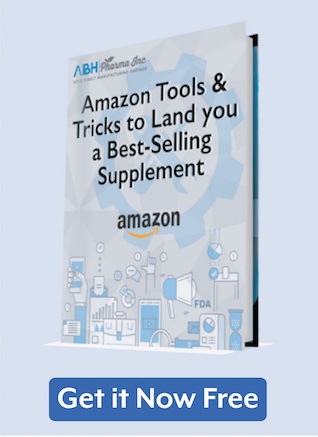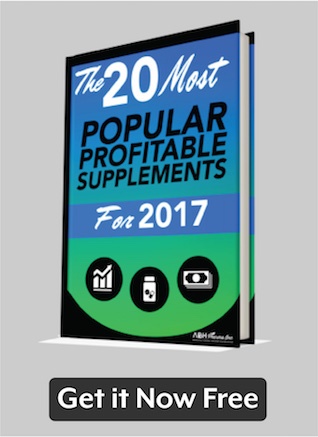Supplements are like the fountain of youth, except that they are real. What that means is that a body
 that has access to all of the vitamins, minerals, and beneficial organism it needs is healthier, stronger, and able to function at higher rates of efficiency.
that has access to all of the vitamins, minerals, and beneficial organism it needs is healthier, stronger, and able to function at higher rates of efficiency.
In short, you almost age slower. The time to think about the after 50 years is while you are still in your 20's. There is a ton of research on what a good diet does to promote positive long-term health.
What should you do now since you are not in your 20's? This blog discusses the best pre retirement supplements.
Best Supplements For Older Adults
Vitamin C — Not all vitamin C is made the same. Many use GMO fillers such as corn. A good tip is to add an organic variety of vitamins to your daily intake.
Vitamin C dissolves in water which means that your body absorbs it quickly and discards the what it does not use just as quick. For that reason, consider taking more than then just the morning dose of Vitamin C. Add it to your lunch and take it again at dinner.
The power of vitamin C: Vitamin C is an antioxidant which means that it helps cells fight off damage which occurs when a cell breaks apart chemical bonds to harness energy.
Damage to cells is caused by free radicals by protecting your cells your body works more efficiently to produce results.
Our body uses vitamin C for many things including:
- The production of collagen [1]
- Boosting the immune system
- Potentially to fight off certain cancers at higher levels [2]
The list of what vitamin C does is long and very positive. There are peer-reviewed studies that show that vitamin C is good for reducing stress, helping improving insulin sensitivity in diabetic II patients, and of course as a powerful tool that our body uses to help defend itself against germs.
Be sure to up your intake of vitamin C as it helps improve health today, and in the long-run.
Vitamin D — Vitamin D is the wonder drug of our times. There is so much scientific data that shows the positive benefits of adequate intake of vitamin D.
Research links low levels vitamin D levels to increased risk of type II diabetes, depression, osteoporosis, and even neurological disorders such as Alzheimer's disease.
Normally, we get enough vitamin D from just being in the sun. But the sun changes position; the days get shorter, the nights get longer and seasonal changes affect how much vitamin D we get. Adding vitamin D as a supplement is the best way to ensure that you receive enough vitamin D.
Vitamin D is essential for our wellbeing. Do you get enough Vitamin D?
Supplements that Boost Your Body's Efficiency
Astaxanthin
— Astaxanthin is a carotenoid that is one of the most important antioxidants around. It is
created by tiny microorganisms which use the substance to shield themselves from harsh environmental conditions.For humans,
astaxanthin
is an outstanding supplement to include in your daily diet.
Peer-reviewed studies show the benefit of astaxanthin in fighting atherosclerotic cardiovascular disease. Other benefits include its anti-inflammatory properties, as an agent that fights oxidative stress, and its very heart friendly. Studies show a beneficial relationship between astaxanthin and the myocardium. [ 3 ]
Calcium — We all know that calcium is important to bone health and density. As you approach 50, your body changes and part of that change is a decrease in the absorption of calcium.
A quality calcium supplement is something we should all add to our daily list of vitamins and minerals when we are in our 20's.
Calcium does a lot more for our bodies than just to help us grow stronger bones. It is an essential mineral in muscle function, nerve function, [4] and it plays a key role in how our body maintains a chemical balance.
How much calcium do you get per day? According to the National Institutes of Health, men over 50 need 1,000 mg per day. Women over 50 need 1,200 mg per day. [5]
Calcium-fortified milk is one way to add calcium to your diet. Leaf, green brassicas are also a good source of calcium. Plan on adding Kale, broccoli, and Chinese cabbage to your diet.
Probiotics — Probiotics regulate gut health. There are many peer-reviewed studies that point out the benefits of probiotics. The do more than just cut down on gas.
benefits of probiotics. The do more than just cut down on gas.
They play a key role in improving skin tone, fighting bad cholesterol, helping people overcome obesity, and they might even play a role in managing autism.
Probiotics are an amazing group of micro-organisms. Studies show that they help improve intestinal health, that they play a pre-role in immune response, that they help the body lower bad cholesterol, and that they might play a larger role in the prevention of certain types of cancer. [ 6 ]
You can add probiotics to your diet through healthy supplements, in some brands of yogurt, homemade kefir, and by enjoying fermented foods.
Omega-3 Fatty Acids — Omega-3 fatty acids are well-known for improving brain health, lowing cholesterol, and improving heart health.
Did you know that omega-3 fatty acids also play a role in helping our body to reduce inflammation and joint pain? There are a few new studies out that question whether or not inflammation is a disease that leads to chronic joint conditions such as osteoarthritis or if it is a symptom of a joint disease.
The new studies show that inflammation often preceded joint disease and if treated early, might delay or reduce the severity of a joint disease.
- Omega-3 fatty acids (fish oil) as an anti-inflammatory: an alternative to nonsteroidal anti-inflammatory drugs for discogenic pain.
Omega-3 fatty acids are available in foods such as salmon, oily fish such as cod, and fish oil. If you want to add omega-3 fatty acids to your diet, then consider fish oil supplements, such as cod liver oil.
Magnesium — Magnesium is a mineral that our body needs for many chores. In fact, it is used in over 300 bodily processes [7] including helping our body to handle nerve function. It is part of our skin's rejuvenation process, so a good intake of magnesium helps us delay the look of old age. 
The recommended intake for men over the age of 50 is 420 mg, and for women, over 50 the recommended daily intake level is 320 mg.
The best foods to eat to increase magnesium are:
- Almonds
- Spinach
- Cashews
- Peanuts
- Soy milk
Magnesium is found in many foods. If you eat more whole foods, such as beans, brown rice, and peas you will increase your magnesium intake naturally. There are also many quality supplements available too.
Fiber — Fiber plays many roles in the body. One of those roles is as a platform for prebiotics. Prebiotics are similar to probiotics, and they help your body to maintain gut health.
Regarding prebiotics, fiber becomes the growing medium where prebiotics and probiotics reproduce and colonize. Fiber also plays a role in helping us absorb fats and sugars before they are digested.They make us feel fuller, so we eat less, and they absorb water which our body can use throughout the digestion process.
We need 21-38 grams of fiber each day as adults. [8] The best pre retirement supplements include healthy fiber. Consider adding wheat germ, and flax seeds to your diet as consumable forms of fiber.
Turmeric — Many sources give Turmeric the title of "superfood, " and it is in many ways. Turmeric and curcumin offer the benefits of being a strong anti-inflammatory agent. They are thought to help us reduce the risk of cancer, decrease cardiovascular diseases, and they might help control type II diabetes.
One of the greatest assets that turmeric offers is that it is a natural substance that is non-toxic and has a high rate of tolerance among patients who consume it. [ 9 ]
Turmeric is easy to add to your diet as a supplement. It is also found in the spice aisle of your grocery store, though that is likely a source that is less potent than supplements.
The best pre retirement supplements help your body to adjust to the changes we undergo as we age. They support body function, improve health, and help to manage some of the most debilitating diseases we face.
Digging Deeper:
[1] Vitamin C in Dermatology - Indian Dermatology Online Journal
[2] Vitamin C Fact Sheet for Consumers - National Institutes of Health
[3] Astaxanthin: A Potential Therapeutic Agent in Cardiovascular Disease - US National Library of Medicine
[4] Calcium signal communication in the central nervous system. - US National Library of Medicine
[5] Calcium Fact Sheet for Consumers - National Institutes of Health
[6] Health Benefits of Probiotics: A Review - Us National Library of Medicine
[7] Magnesium Fact Sheet for Health Professionals - National Institutes of Health
[8] Fiber - MedlinePlus
[9] Therapeutic Roles of Curcumin: Lessons Learned from Clinical Trials - US National Library of Medicine







